Frontpage News (3259)
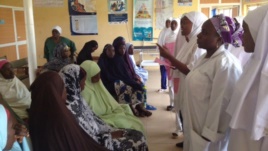 LAGOS/KADUNA, NIGERIA—An association of doctors in Nigeria said the government must do more to improve access and affordability of health care in Africa’s most populous country. At a meeting held last week, the Nigerian Medical Association called for the government to levy a tax on cigarettes, alcohol and cellphone credits. Nigerian Medical Association president Kayode Obembe said Nigeria’s doctors are overstretched. He estimated there is one doctor for every 6,000 patients in Nigeria — a ratio far and above World Health Organization recommendations.
LAGOS/KADUNA, NIGERIA—An association of doctors in Nigeria said the government must do more to improve access and affordability of health care in Africa’s most populous country. At a meeting held last week, the Nigerian Medical Association called for the government to levy a tax on cigarettes, alcohol and cellphone credits. Nigerian Medical Association president Kayode Obembe said Nigeria’s doctors are overstretched. He estimated there is one doctor for every 6,000 patients in Nigeria — a ratio far and above World Health Organization recommendations.
National health insurance, Obembe said that money could pay for a national health insurance plan so poor people can afford preventative medical care. And many of Nigeria’s medical school graduates go overseas, he said. Those that stay in the country tend to live in cities, not in the rural areas where they also are needed. “We still need to put more efforts so that we can get more doctors. And not just getting more doctors, to ensure that they are evenly distributed to take care of every part of the community,” said Obembe.
 An Act to amend the Counterfeit and fake drugs laws on Thursday passed through second reading. In the lead debate, Senator Biodun Olujimi (Ekiti South), took a sober reflection of huge casualties occasioned by application of fake drugs, stressing that if Senate does not rise to the occasion of enacting punitive laws, the menace would linger. She sought the cooperation of lawmakers in amending the Acts for purposes of riding the nation of fake drugs and unwholesome processed foods. “An Act to amend the counterfeit and fake drugs and unwholesome processed foods (Miscellaneous Provisions) Act Laws CAP C34 Laws of the federation and for other matters connected therewith, 2015.
An Act to amend the Counterfeit and fake drugs laws on Thursday passed through second reading. In the lead debate, Senator Biodun Olujimi (Ekiti South), took a sober reflection of huge casualties occasioned by application of fake drugs, stressing that if Senate does not rise to the occasion of enacting punitive laws, the menace would linger. She sought the cooperation of lawmakers in amending the Acts for purposes of riding the nation of fake drugs and unwholesome processed foods. “An Act to amend the counterfeit and fake drugs and unwholesome processed foods (Miscellaneous Provisions) Act Laws CAP C34 Laws of the federation and for other matters connected therewith, 2015.
Senator Barau Jibrin (Kano North) on his part, adduced reasons fake drugs persist despite efforts by NAFDAC at ridding the menace without success to lack of punitive sanctions. In his words: “Perpetrators of counterfeit drugs feel that there is no punitive laws and also they could easily manovoure their ways each time they were caught and go free, but it is time we introduce strict punishment,” he said. Corroborating, Senator Shehu Sani’s position in his applause for late former Director General of NAFDA, Dora Akunyili, he regretted that her effort has been whittled down, noting that the Senate would get to the root of those involved in the
Jigawa Govt. To Train 150 Nurses Overseas, Employ 60 Doctors From Abroad – Gov. Abubakar
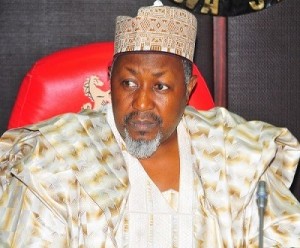 The Jigawa Government says it will train 150 nurses and employ 60 medical doctors in 2016 to address the shortage of medical personnel in the hospitals in the state. Gov. Badaru Abubakar, who made this known in an interview with the News Agency of Nigeria (NAN) on Friday in Dutse, said that the government would establish another school of nursing in Hadejia. Abubakar said that the government decided to take those steps in order to enhance the quality of healthcare in the state.
The Jigawa Government says it will train 150 nurses and employ 60 medical doctors in 2016 to address the shortage of medical personnel in the hospitals in the state. Gov. Badaru Abubakar, who made this known in an interview with the News Agency of Nigeria (NAN) on Friday in Dutse, said that the government would establish another school of nursing in Hadejia. Abubakar said that the government decided to take those steps in order to enhance the quality of healthcare in the state.
“What we have discovered in the health sector is an acute shortage of medical personnel – nurses, midwives and doctors. “So we plan to train 150 nurses and 60 doctors abroad next year; also, we plan to have another school of nursing in Hadejia. “So that in a short period of time, we can have between 400 and 500 nurses churned out from different schools here and the ones that we will train abroad to take care of the acute shortage of health personnel.’’ Abubakar said it was in order to address those challenges that the state government allocated N20 billion to the health sector in the 2016 budget.
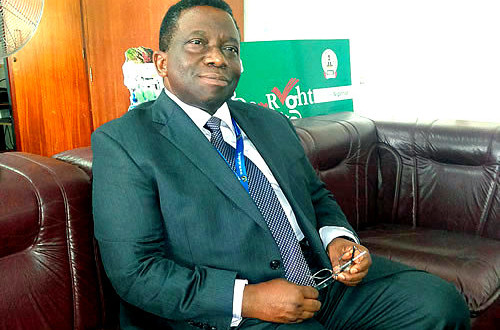 Minister of Health, Prof Isaac Adewole, has raised the alarm over lack of adequate funding for the health sector, lamenting that the menace of Tuberculosis was not provided for in the 2015 Budget of the ministry. Adewole, who spoke on Friday in Abuja during an interactive meeting with the House of Representatives Standing Committee on HIV, AIDS, Tuberculosis and Malaria Control, said the priority of his ministry will be primary healthcare and a quest for the health sector to be funded appropriately and promoting public health education.
Minister of Health, Prof Isaac Adewole, has raised the alarm over lack of adequate funding for the health sector, lamenting that the menace of Tuberculosis was not provided for in the 2015 Budget of the ministry. Adewole, who spoke on Friday in Abuja during an interactive meeting with the House of Representatives Standing Committee on HIV, AIDS, Tuberculosis and Malaria Control, said the priority of his ministry will be primary healthcare and a quest for the health sector to be funded appropriately and promoting public health education.
“No budget for TB this year and yet HIV/AIDS is driving TB and TB is driving HIV/AIDS,” the minister said. He also pointed out the need for legislation on the tiers of healthcare services of primary, secondary and tertiary, saying that the responsibility of each level should be spelt to enhance service delivery. “I will plead with our legislators to look into this and specify who does what,” Adewole noted.
 Mr Segun Olulade, the Chairman of Lagos State House of Assembly Committee on Health, on Sunday said that the committee would ensure more efficiency in health care delivery in the state. Olulade told the News Agency of Nigeria (NAN) in Lagos that the Assembly was committed to bringing about a revolution in the health care sector. “I want to assure residents that the health sector in Lagos State will witness a revolution that will bring in efficiency and care. “We will ensure unparalleled health services as far as Nigeria and Africa is concerned.
Mr Segun Olulade, the Chairman of Lagos State House of Assembly Committee on Health, on Sunday said that the committee would ensure more efficiency in health care delivery in the state. Olulade told the News Agency of Nigeria (NAN) in Lagos that the Assembly was committed to bringing about a revolution in the health care sector. “I want to assure residents that the health sector in Lagos State will witness a revolution that will bring in efficiency and care. “We will ensure unparalleled health services as far as Nigeria and Africa is concerned.
“We are committed to this promise as we are going to perform our oversight functions as expected. “We will look into areas that people have been making complaints, especially the attitude of the health care providers. "All hands must be on deck; It is our collective responsibility to ensure that we deliver better health care services to residents”.
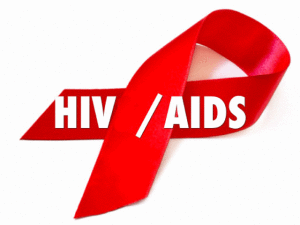 There is increasing concern that more women are infected by HIV than men as 60 per cent of people living with HIV infections in Africa are women.This can be simply traced to sexual violence including rape and defilement, intergeneration sex which involves young girls having sex with older men (sugar daddies), sex with multiple partners, anal/vaginal sex. TUNDE OGUNTOLA in this piece x-rays why women are more vulnerable to HIV/AIDS Women often experience the impact of HIV infection biologically more severely than men in unprotected heterosexual intercourse as they are twice as likely as men to acquire HIV from an infected partner.
There is increasing concern that more women are infected by HIV than men as 60 per cent of people living with HIV infections in Africa are women.This can be simply traced to sexual violence including rape and defilement, intergeneration sex which involves young girls having sex with older men (sugar daddies), sex with multiple partners, anal/vaginal sex. TUNDE OGUNTOLA in this piece x-rays why women are more vulnerable to HIV/AIDS Women often experience the impact of HIV infection biologically more severely than men in unprotected heterosexual intercourse as they are twice as likely as men to acquire HIV from an infected partner.
The HIV virus that causes AIDS is transmitted through two major routes. The first, which accounts for 80 per cent of the cases, is through unprotected sex between men and women. This is followed by HIV transmission from mother to child during pregnancy, labour and breastfeeding, which is responsible for about 20 per cent of the cases. As part of activities commemorating the 2015 World AIDS Day which was the 35th the US Ambassador to Nigeria, James Entwistle said there is urgent need to take greater action to tackle the menace which he said, “The time to act is now.” That is the theme of this 35th World AIDS Day. This theme conveys the urgency of the Joint United Nations Program on HIV/AIDS. The strategy behind the UN program is simple, and involves information, treatment, and suppression of the disease.
Nigeria’s Maternal Mortality Is 560 Deaths Per 100,000 Live Births – WHO
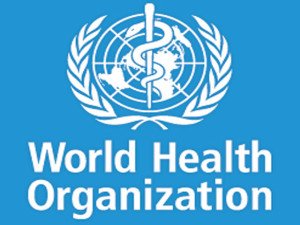 The World Health Organisation’s (WHO) 2014 report has stated that the maternal mortality rate in Nigeria is 560 deaths per 100,000 live births and one-third of all global maternal deaths are concentrated in two populous countries which includes Nigeria, after India. This was revealed, weekend, by the executive director of Women Advocates’ Research and Documentation Centre (WARDC), Dr Abiola Akiyode Afolabi at the “National Roundtable: Sustainable Development Goals Gender Equality and Maternal Health” in Abuja.
The World Health Organisation’s (WHO) 2014 report has stated that the maternal mortality rate in Nigeria is 560 deaths per 100,000 live births and one-third of all global maternal deaths are concentrated in two populous countries which includes Nigeria, after India. This was revealed, weekend, by the executive director of Women Advocates’ Research and Documentation Centre (WARDC), Dr Abiola Akiyode Afolabi at the “National Roundtable: Sustainable Development Goals Gender Equality and Maternal Health” in Abuja.
She said women in Nigeria still face financial barriers, infrastructural and institutional barriers in accessing adequate maternal healthcare and are still been detained for inability to pay high user fees and lose their lives in the process. “The 2014 millennium Development Goals report almost one-third of all global maternal deaths are concentrated in two populous countries: India, with an estimated 50,000 maternal deaths (17%) and Nigeria, with an estimated 40,000 maternal deaths (14%) while the WHO 2014 report on maternal mortality states that Nigeria’s MMR is 560 deaths per 100,000 live births.”
NHIS Has Covered Less Than 7 Per Cent Nigerians Since Flag-off – NMA
Written by Super User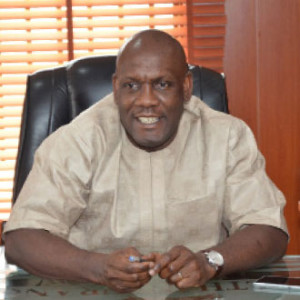 The Nigerian Medical Association (NMA) has stated that the National Health Insurance Scheme (NHIS) which was flagged off since June 2005 has covered less than 7 per cent of the Nigeria population. Dr Kayode Obembe, NMA President said this yesterday in a statement to mark this year’s International Day of Universal Health Coverage commemorated every December 12, in Abuja. He said governments at all level should redirect attention to community health insurance as a panacea to the 70 per cent out-of-pocket expenditure incurred by Nigerians.
The Nigerian Medical Association (NMA) has stated that the National Health Insurance Scheme (NHIS) which was flagged off since June 2005 has covered less than 7 per cent of the Nigeria population. Dr Kayode Obembe, NMA President said this yesterday in a statement to mark this year’s International Day of Universal Health Coverage commemorated every December 12, in Abuja. He said governments at all level should redirect attention to community health insurance as a panacea to the 70 per cent out-of-pocket expenditure incurred by Nigerians.
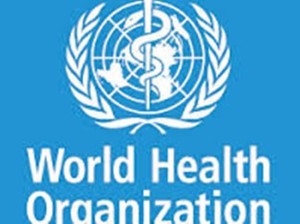 The World Health Organisation (WHO) on Tuesday in Baghdad cautioned that Iraq’s public health, water and sanitation systems were collapsing. WHO said Iraq’s prime minister responded to protests this summer over failing public services by launching a campaign against corruption and mismanagement. It said less than four months later, there was little sign of improvement in one key sector such as healthcare. “With Iraqis fleeing Islamic State in ever greater numbers, the country’s growing population of internal refugees is straining public facilities already ground down by decades of war, sanctions and red tape.
The World Health Organisation (WHO) on Tuesday in Baghdad cautioned that Iraq’s public health, water and sanitation systems were collapsing. WHO said Iraq’s prime minister responded to protests this summer over failing public services by launching a campaign against corruption and mismanagement. It said less than four months later, there was little sign of improvement in one key sector such as healthcare. “With Iraqis fleeing Islamic State in ever greater numbers, the country’s growing population of internal refugees is straining public facilities already ground down by decades of war, sanctions and red tape.
'We need to develop our primary health care centres' says health minister
Written by Super User Prof Isaac Adewole, the health minister of Nigeria has pointed out that there is an urgent need to focus on Primary Health Care (PHC) in the country. Adewole, who spoke recently in Abuja during an interactive meeting with the House of Representatives Standing Committee on HIV, AIDS, Tuberculosis and Malaria Control made this statement. He also said that the priority of his ministry will be primary healthcare and a quest for the health sector to be funded appropriately and promoting public health education “We want the Primary Health Care (PHC) to be the first point of call so that it will be able to offer the basic care that ordinary Nigerians will require.
Prof Isaac Adewole, the health minister of Nigeria has pointed out that there is an urgent need to focus on Primary Health Care (PHC) in the country. Adewole, who spoke recently in Abuja during an interactive meeting with the House of Representatives Standing Committee on HIV, AIDS, Tuberculosis and Malaria Control made this statement. He also said that the priority of his ministry will be primary healthcare and a quest for the health sector to be funded appropriately and promoting public health education “We want the Primary Health Care (PHC) to be the first point of call so that it will be able to offer the basic care that ordinary Nigerians will require.
More...
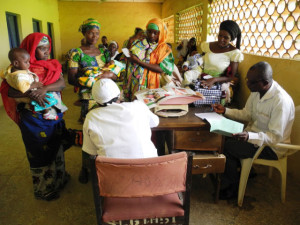 The National Health Act which is yet to be popular among Nigerians, and which is expected to encompass all health-related issues is to release about N50 billion annually. This can save the lives of 3,131,510 mothers, newborns and under 5s by 2022 and thus support Nigeria’s response to poor indices.
The National Health Act which is yet to be popular among Nigerians, and which is expected to encompass all health-related issues is to release about N50 billion annually. This can save the lives of 3,131,510 mothers, newborns and under 5s by 2022 and thus support Nigeria’s response to poor indices.
However, this depends on political will and Nigeria’s cumulative income. This was revealed yesterday by a member of the Health Reform Foundation of Nigeria (HERFON), Dr Seun Adeleke, at an interactive media session organised by Development Communications Network in collaboration with HERFON with the theme “Funding Maternal and Child Health: A Call to Action.”
Adeleke disclosed that the Health Act which also takes care of incessant strikes in the health sector, if implemented, is expected to be divided into five categories for the benefit of all. These include insurance, vaccines and essential drugs, laboratory facilities, boosting of healthcare facilities, etc.
Reps To Investigate NHIS Over Contributors’ Funds
Written by Super User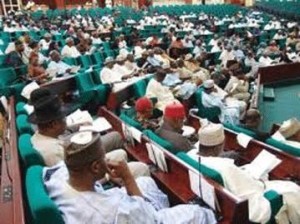 The House of Representatives on Thursday mandated its Committee on Healthcare Services to investigate the National Health Insurance Scheme (NHIS) over contributors’ funds and recommend ways of protecting it misuse. This mandate followed a unanimous adoption of a motion titled: “Need to protect contributors to the national health insurance scheme and insulate the scheme from misuse.’’ The motion was jointly sponsored by Reps. Onwubuariri Kingsley (PDP-Imo), Joseph Edionwele (PDP-Edo) and Chike Okafor (APC-Imo). Moving the motion, Kingsley said there was need to address the growing discontent among contributors to the scheme.
The House of Representatives on Thursday mandated its Committee on Healthcare Services to investigate the National Health Insurance Scheme (NHIS) over contributors’ funds and recommend ways of protecting it misuse. This mandate followed a unanimous adoption of a motion titled: “Need to protect contributors to the national health insurance scheme and insulate the scheme from misuse.’’ The motion was jointly sponsored by Reps. Onwubuariri Kingsley (PDP-Imo), Joseph Edionwele (PDP-Edo) and Chike Okafor (APC-Imo). Moving the motion, Kingsley said there was need to address the growing discontent among contributors to the scheme.
He cited unsatisfactory services and harrowing encounters with the Health Care Providers (HCPs) in terms of drug availability and administration. According to the lawmaker, thousands of eligible Nigerians who have applied for registration as beneficiaries have been unduly denied benefits from the scheme owing to administrative lapses. He added that the situation had brought untold hardship to many Nigerians.Kingsley said the scheme had attained only 2.5 per cent coverage out of an estimated 30 per cent projection for 2015.
AGPMPN, Medismarts Sign Agreement to Connect 2,000 Hospitals.
Written by Super User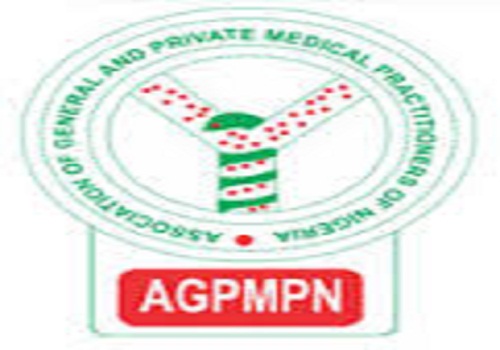 The Association of General Private Medical Practitioners of Nigeria (AGPMPN) and Medismarts have signed a strategic agreement that will see Medismarts deploy its Electronic Medical Records (EMR) cloud platform to its over 2,000 member hospitals in Lagos State. As part of the agreement, Medismarts has the mandate to go to the AGPMPN’s 18 zones in Lagos State with the objective of ensuring that all hospitals records are digitized and interconnected, a joint statement by the duo said.
The Association of General Private Medical Practitioners of Nigeria (AGPMPN) and Medismarts have signed a strategic agreement that will see Medismarts deploy its Electronic Medical Records (EMR) cloud platform to its over 2,000 member hospitals in Lagos State. As part of the agreement, Medismarts has the mandate to go to the AGPMPN’s 18 zones in Lagos State with the objective of ensuring that all hospitals records are digitized and interconnected, a joint statement by the duo said.FG Shuts Down FMC Owerri Over Workers’ Indiscipline
Written by Super User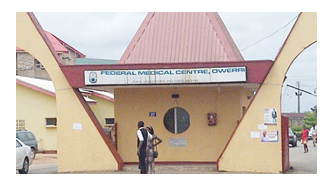 The federal government has shut down the Federal Medical Centre, Owerri, Imo state, over workers indiscipline and rounds of protests from union members who have insisted that the medical director, Dr Angela Uwakwem must be removed for false allegations levelled against her. It is also set to do a staff audit of 2,500 employees of the centre so as to ensure proper restoration of services that have been disrupted. This was announced yesterday, by the minister of health, Prof Isaac Adewale at a press briefing in Abuja.
The federal government has shut down the Federal Medical Centre, Owerri, Imo state, over workers indiscipline and rounds of protests from union members who have insisted that the medical director, Dr Angela Uwakwem must be removed for false allegations levelled against her. It is also set to do a staff audit of 2,500 employees of the centre so as to ensure proper restoration of services that have been disrupted. This was announced yesterday, by the minister of health, Prof Isaac Adewale at a press briefing in Abuja.
He said the federal government is fully in support of Public Private Partnership especially in the health sector, bearing in mind that the government can no longer fund health alone, which was the bone of contention, hence the crisis as “the proposal was vehemently opposed by people who may have been benefitting from the system and went on to incite the unions.






